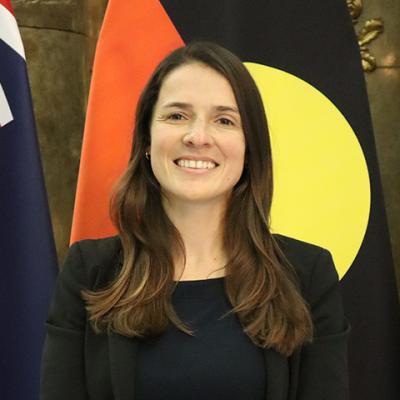
Master of Governance and Public Policy
Overview
Equip yourself with advanced skills in policy analysis, governance and public sector leadership.
As a student, you'll undertake high-level coursework – choosing from over 40 subjects and projects such as policy design and implementation, economic analysis, dynamics of governance, globalisation and international crisis management.
A mix of theoretical study and practical projects will prepare you for leadership roles in government, NGOs and international organisations. Tailor the program to suit your career goals by choosing courses in areas such as:
- international policy and governance
- resource management
- governance and development
- designing social and community policy.
As a Master of Governance and Public Policy graduate you'll be equipped with a transferable skill-set allowing you to meaningfully address key policy issues and improve policy outcomes in both the public and private sectors. You will gain an in-depth understanding of the way governments operate as well as the major public issues confronting our society.
Master of Governance and Public Policy graduates have gone on to work in economic policy, diplomacy, international relations, social enterprises, not for profits as well as state and federal government departments, to name a few.
Program highlights
- Interact with world-class scholars and policy practitioners, and work closely with top-rated researchers in the field.
- Participate in the Graduate Centre Mentorship program and gain practical advice on career and employability opportunities
- Undertake an optional internship or a research project with industry leaders in a workplace setting
How you'll learn
Your learning experiences are designed to best suit the learning outcomes of the courses you choose.
- Lectures
- Work placements
- Overseas study
- Research experience
- Fieldwork
What you'll study
At UQ, degrees are called 'programs' and subjects are called 'courses'. Here's a sample of the courses you could study in this program:
- Writing Politics
- Foundations in Politics, Policy and International Relations
- Dynamics of Governance
- Economic Analysis and Public Policy
Career possibilities
Postgraduate study can take you anywhere. Here are some of the careers you could be on your way to:
- Think tank adviser
- Policy research institute member
- Not-for-profit manager
- Economic policy adviser
- Project environmental adviser
- Ministerial team member
- Diplomatic corps official
- Public policy adviser
- Government relations manager
- Social justice advocate
Events
See all events
29 June
Voyages to the Underworld: UQ Centre for Western Civilisation Winter School
Stories
See all stories
UQ people
Opening the floodgates to improve crisis responses
5-minute read

UQ people
Meet the expert: exploring peace and conflict studies with Dr Melissa Johnston
5-minute read
Stories
See all stories
UQ people
Meet Terry from the USA, studying Governance and Public Policy in Australia
1-minute read

UQ people
Meet the expert: exploring peace and conflict studies with Dr Melissa Johnston
5-minute read
Entry requirements
Entry requirements
It's possible to complete this degree in 2 years, 1.5 years or 1 year depending on your qualifications and experience.
You can apply for any duration as long as you meet the entry requirements. You may also be eligible to apply for credit or exemptions to shorten your degree further. You'll graduate with the same qualification no matter how long you take to complete the degree.
2-year degree (32 units of study)
To be eligible to complete the degree in 2 years full-time (or part-time equivalent)full-time (only available as full-time study), you'll need:
- a bachelor's degree (or equivalent) in any discipline, or
- to have successfully completed 3 years of study towards an approved qualification at an overseas partner institution that has a formal pathway to the Master of Governance and Public Policy (2-year duration).
You must have a grade point average (GPA) of 5.0 on a 7-point scale in your previous qualification.
1.5-year degree (24 units of study)
If you have relevant prior learning or experience, you can reduce the number of courses you need to complete and graduate in less time.
To be eligible to complete the degree in 1.5 years full-time (or part-time equivalent)full-time (only available as full-time study), you'll need:
- a bachelor's degree (or equivalent) in a relevant discipline (see below), with a GPA of 5.0, or
- a bachelor's degree (or equivalent) in any discipline, and to have successfully completed the Graduate Certificate in Governance and Public Policy from UQ or the Graduate Diploma in Governance and Public Policy from UQ, with a GPA of 4.0, or
- a bachelor's degree in any discipline with a GPA of 5.0, plus 3 years full-time equivalent, relevant work experience in a public policy organisation (see below).
The listed grade point averages (GPA) are on a 7-point scale.
Applications based on work experience will be individually assessed.
1-year degree (16 units of study)
If you have relevant prior learning or experience, you can reduce the number of courses you need to complete and graduate in less time.
To be eligible to complete the degree in 1 year full-time (or part-time equivalent)full-time (only available as full-time study), you'll need:
- a bachelor honours degree (or equivalent)* in a relevant discipline (see below) with a GPA of 5.0, or
- a bachelor's degree (or equivalent) in a relevant discipline, and to have successfully completed the Graduate Certificate in Governance and Public Policy from UQ, with a GPA of 4.0.
The listed grade point averages (GPA) are on a 7-point scale.
*You must have completed a substantial research project in your Honours degree equivalent to at least one semester of full-time study (or part-time equivalent).
Relevant disciplines for previous qualifications
Relevant disciplines include political sciences, social sciences, governance, public policy, public administration, public management, political science, organisational studies, history and law.
You must have completed at least a major, a field of study, or approximately 30% of program content including a mix of introductory and advanced courses.
Relevant work experience
Relevant work experience includes work:
- in the planning, management and implementation of policies or programs at any level of governmental agencies - local, state, national or international, and
- in program delivery or project management in non-government and community organisations, and
- in research, evaluation, building organisational capabilities, and service delivery.
This work experience should demonstrate analytical and writing skills.
Evidence of relevant work experience should include a letter from your employer (and/or previous employers) stating the following:
- That you work (or worked) within the specified organisation
- The nature of your work, including any relevant duties and responsibilities
- The length of time that you worked there (i.e. 3 years)
- Whether your employment was full-time, part-time* or casual*
*if you worked part-time or casual, please list the average number of hours worked per week.
Related programs
Depending on your previous qualifications and current goals, you might want to consider
one of these related programs:
English language requirements
IELTS overall 6.5; reading 6; writing 6; speaking 6; listening 6. For other English Language Proficiency Tests and Scores approved for UQ
TOEFL iBT (including Paper Edition) - Overall 87, listening 19, reading 19, writing 21 and speaking 19.
PTE Academic - Overall Score of 64 and 60 in all sub bands.
BE - A minimum overall grade of 4 plus a minimum grade of C in all macro skills.
CES - Overall 176 and 169 in all sub bands.
OET is not accepted.
There are other ways to meet the English language requirements. For some programs, additional conditions apply.
Student visas
International students who are accepted into full-time study in the Master of Governance and Public Policy are eligible to apply for an Australian student visa (subclass 500).
There are a number of requirements you must satisfy before a visa is granted, including the Genuine Student (GS) requirement.
Fees and Scholarships
Indicative annual fee
Approximate yearly cost of tuition (16 units). Your fees will vary according to your study load. Fees are reviewed each year and may increase.
$31,200
2026
Approximate yearly cost of full-time tuition (16 units). Your fees will vary according to your study load. Fees are reviewed each year and may increase.
AUD $45,792
2026
Government assistance
Financial aid
As an international student, you might be eligible for financial aid – either from your home country, or from the Australian Government.
FEE-HELP
Domestic students who are accepted into the Master of Governance and Public Policy pay tuition fees.
FEE-HELP is an Australian Government loan scheme to assist eligible students with the cost of their tuition fees.
Centrelink support
The Australian Government offers a number of income-support payments to eligible Australian university students.
Scholarships
You may be eligible for more than 100 scholarships, including:
How to apply
Applying online
All international applications should be submitted to UQ. If you prefer, you can use an approved UQ agent near you.
The program code for the Master of Governance and Public Policy is 5607.
This program is available in multiple durations. You can apply for any duration as long as you meet the entry requirements.
When you apply, select your preferred duration. If you don't meet the requirements for your first preference, we'll automatically consider you for entry into a longer duration.
Applying online
All domestic applications should be submitted to UQ.
The program code for the Master of Governance and Public Policy is 5607.
This program is available in multiple durations. You can apply for any duration as long as you meet the entry requirements.
When you apply, select your preferred duration. You can also ask us to consider you for a longer duration if you don't meet the entry requirements for your first preference.
Important dates
The closing date for this program is:
- To commence study in semester 2 - May 31 of the year of commencement.
- To commence study in semester 1 - November 30 of the previous year.
Visa processing times vary. Apply and accept your offer as early as you can.
To learn more about UQ dates, including semester start dates, view the Academic Calendar.
Important dates
The closing date for this program is:
- To commence study in Semester 1 - January 31 of the year of commencement.
- To commence study in Semester 2 - June 30 of the year of commencement.
To learn more about UQ dates, including semester start dates, view the Academic Calendar.
Aboriginal and Torres Strait Islander applicants
For support with applying – or if you have any questions about university life – get in touch with our Aboriginal and Torres Strait Islander Studies (ATSIS) Unit.
Explore other programs
Express yourself. And your interest.
They say choosing a degree is hard, which is why we've made it easy. Register your interest and we'll send you everything you need to know about applying to UQ.








